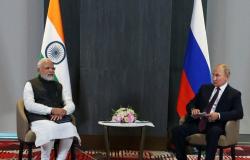Last year I visited the Santiago Vázquez prison (formerly Comcar) where 15 thousand Uruguayans are imprisoned. I toured with a delegation of authorities, foundations and NGOs some of its facilities and in particular the Industrial Pole where a small portion of those deprived of liberty in a pre-release situation are located. Many there told me that that place—where everyone wants to go—was Disneyland compared to the rest of the prison facility.
The delegation was made up of organizations that seek to support the Ministries of the Interior and the Ministry of Social Development (Mides) to generate the conditions that prevent those released from returning to prison.
In the Industrial Pole, a series of jobs are carried out such as carpentry, blacksmithing, baking, craft blocks, weaving and other tasks that occupy their time and give them a tool to hold on to when looking for employment. It is a way to be skilled in a job for when they have to go out and try to reintegrate into society.
The figure, despite being repeated, no longer ceases to be overwhelming: every day 29 enter Uruguayan prisons and 26 leave. An exponential projection where more than 70% reoffend due to lack of job opportunities and in the face of difficulties—budgetary, personnel and locations— of the well-intentioned National Directorate of the Liberated (Dinali) to absorb the entire enormous population that returns to freedom month after month.
In 2021, Minister Martín Lema completed the transfer of Dinali to the orbit of Mides in coordination with the Ministry of the Interior and the National Rehabilitation Institute (INR). In this way, a new era began that seeks to change the approach in post-penitentiary policies. The presence of a territorial office of Mides in the former Comcar, announced even before Lema by Pablo Bartol, is an enormous achievement that is slowly beginning to take shape.
During the visit I had the opportunity to talk with several inmates who expressed their hopes for when it was their turn to leave. Also their fears of failure and their doubts about how to get a job once outside. To this day, the dialogue with one of them—let’s say his name was Facundo—who offered me a mate has remained in my mind to this day.
He had entered when he had just turned 18. He was in his early thirties. He estimated he had about six months left. She was getting ready to leave. He had studied until the third year of high school in prison and now that he had arrived at the Industrial Pole he was behaving well so as not to return to “hell.” He was referring to other modules where survival with uninterrupted daily violence and overcrowding is the currency with which one must learn to live. He had committed murder.
“He was a kid,” he told me.
Marcelo Casacuberta
Facundo had entered prison before the existence of WhatsApp, to provide a temporal reference. He was very curious about what life would be like when he got out. He told me—and here I quote him verbatim—that he had only gone out in all that time once. It was when he was stabbed and he was in serious condition in the Intensive Care Center – I think – of the Hospital de Clínicas.
The reference he had left was his mother, but he couldn’t live with her again, because she only had one room and there was no place for him. It was the only thing that was left “outside”. The “neighborhood” friends no longer existed.
I don’t know if six months after this conversation it came out or not. If he continued to behave well. If she found a place to stay other than the room where his mother lived. Maybe it’s one of the car attendants who make a few coins to eat downtown. I will never know, but I wish he made it.
…
Mides, through Dinali and within the framework of the Oportunidades Network, presented the documentary on Tuesday the 23rd at the Teatro Movie del Montevideo Shopping “Feel. Uruguay free of prejudices. “Stories that seek to improve themselves.”
It tells without much of a twist the story of four people released from the prison system who found their improvement through sport, religion and work. It was made by the production company Kubrick Media based on an idea from the Soul agency, a member of the Oportunidades Network.
The project was financed by the National Research and Innovation Agency (ANII) for its production and by the United Nations Development Program for its dissemination.
It is a film about the life adventures of four men with broken childhoods who took the path of crime. It tells the stories of collapse and overcoming of Gabriel, Víctor, Diego and Julio. Four Uruguayans who were hurtling without a net into the world of crime.
Some killed, others stole, others trafficked drugs. They paid the price for their actions locked up in the infamous prisons of Uruguay where they had to fight not only to survive but to rehabilitate themselves. The four testimonies are hard, sad, lonely and in the case of the documentary – I regret the spoiler— end well.
The documentary seeks to generate a cultural change by trying to raise awareness among the population about the freed man. It aims for society to be able to see the former inmate with a different perspective and understand that without opportunities for reintegration they have almost only one destiny: the revolving door that returns them to prison.
The presentation of a film by Mides may sound curious and even a way of making public policies “outside the box.” It is. The situation in Uruguayan prisons needs to be approached from other angles.
I hope that the film generates a great national controversy, that it awakens whoever needs to wake up to face this problem with conviction and with much more solid public policies so that the rest of society and businessmen understand once and for all that We must deactivate the social bombs that detention centers represent in Uruguay.
Giving work is part of the solution.

Marcelo Casacuberta
Mides works on the implementation of other axes focused on care, support, containment and advice for people who leave the prison system, among them the aforementioned Oportunidades Network; the Assisted Inclusion Project (PIA); the creation of the Training and Socio-Labor Opportunities Space (ECOS).
In that framework, this film should provoke the beginning of a public discussion needed and urgent for liberated people with the will to change to find a society that seriously integrates them and provides opportunities.
It is obvious that one film is not enough, but things have a start.
…
Since we are talking about cinema, I bring the words of the actor from the film The Snow SocietyEnzo Vogrincic who, when he received the Platinum award for best supporting male actor a few days ago, said: “I come from Uruguay, which is a small country with few opportunities and a neighborhood that has, in turn, fewer opportunities. When someone gives you the opportunity to do something, it really makes a big difference in one’s life. Thank you very much to all the people who ever gave me opportunities in life“added the 31-year-old actor, whose present is a source of admiration for his peers and pride for Uruguay.
An actor born in the Gruta de Lourdes, a very humble neighborhood in Montevideo, who triumphs in the world; a film about four isolated cases of improvement: all in the same country that has the enormous challenge of generating opportunities for Uruguayans who are released from prison.
At the end of the day, when reality appears so discouraging, we only have one option left: believe in the possibility of transforming it. The four cases presented in the documentary are clear examples of this; They are glimpses of hope that remind us that, despite everything, destiny can be changed. We need that faith to be able to continue.






